US students pressure their universities to end financial ties with Israel
By Reza Javadi
Students across US university campuses have staged widespread protests urging their universities to divest from companies associated with Israel, as the occupying regime intensifies its bombardment of residential areas in the Gaza Strip.
Last week, hundreds of Brown University students rallied against Israeli atrocities and slammed the lack of safety for pro-Palestinian students, after three Palestinian students were shot by a gunman while walking on the street in the state of Vermont.
This came weeks after protesters from a pro-Palestine group called Jews for Ceasefire Now staged a sit-in in University Hall, calling for the university to strip away its endowment from Israeli weapons companies.
“Palestinian students and our co-strugglers have felt unsafe and scared and uncertain, and rising, racist, violent climate in the US for several weeks now,” Sherena Razek, president of Brown’s Graduate Labor Organization (GLO) and a member of GLO’s Palestine Solidarity Caucus, told The Nation. The shooting “was shocking, but also not surprising at the same time.”
Brown’s president, Christina Paxson, finally addressed a vigil for one of the victims, telling a gathering of several hundred students that she lamented her institution’s inability to stop such tragedies. “We are powerless to do everything we’d like to do,” she said.
Her remarks were met with angry students who booed her and shouted “shame on you.” They demanded that the university cut ties with corporations associated with the Israeli military.
“Divest!,” “Divest from genocide!,” “Shame on you Paxson!,” “You’re profiting from Palestinian deaths!,” “If he was in Palestine, you wouldn’t care!” the students shouted.
The protesters warn that by investing in the companies associated with the Israeli military, universities are contributing to and profiting from the current destruction and loss of life in Gaza.
“We don’t really trust the university to have their priority be keeping us safe,” Rita Feder, a member of Jews for Ceasefire Now, said after the vigil.
“If they really cared about keeping their students safe, they wouldn’t have publicly paraded arrested students in the first place.… If they really cared about their students, [they would] divest from weapon manufacturing companies that are continuing to profit off of the ongoing unbelievably horrifying massacre in Gaza,” she added.
Brown University students are circulating a petition that states, “Until Brown heeds the multiple democratic demands to divest the endowment from Israel and the military-industrial complex, the university remains complicit in the ethnic cleansing of Palestine.”
Students across other US campuses also reiterated similar demands in the aftermath of Israel’s brutal aggression on the besieged Gaza Strip which began early in October. Students from the Rhode Island School of Design joined a pro-Palestinian march to the Providence headquarters of the military-focused conglomerate Textron.
Furthermore, students from New York University, Columbia University, and the City University of New York gathered outside the headquarters of the JPMorgan Chase bank, condemning the bank and other corporations for helping to supply the Israeli military.
In the course of student rallies against US universities’ ties with Israel, students from a pro-Palestinian group at Cornell University occupied two buildings on campus earlier this week, voicing similar demands as other university students.
The Coalition for Mutual Liberation (CML) called on the university to cut its support of Israel’s military components such as Technion (Israel Institute of Technology) and Tata Motors (an automobile production company based in India), to adopt policies against doxxing and to revise its definition of antisemitism.
CML warned in the statement that Cornell’s investment in these companies, which are included in Cornell’s endowment fund, “has alienated Palestinian, Arab, and Muslim students as Israel’s siege of Gaza intensifies.”
The movement is not new as the Pro-Palestinian student activists began pushing campuses more than two decades ago. That push quickly evolved into the Boycott, Divest, and Sanctions (BDS) movement, which has thrived on college campuses. While the movement has made some progress, no university has actually divested from companies with links to Israel.
US universities suspend pro-Palestine voices
The Israeli atrocities against Palestinians have prompted the academic community across the US to raise their voices against the aggression. However, as the economic and political power in the US remains most clearly on the side of Israel, every pro-Palestinian voice is suppressed across the country.
In a controversial move last month, University of Southern Florida officials violated students’ free speech rights by moving to ban a pro-Palestinian student group from university campuses.
The move prompted the USF’s Students for Justice in Palestine (SJP) chapter to file a lawsuit against state and university officials alleging that the order to disband the group violated the First Amendment rights of an organization that’s promoting peace.
Moreover, the faculty members and senior academics, who raised their voices against Israeli aggression, have also been subjected to suppression or firing from their positions.
Benjamin Neel, a professor of medicine at New York University (NYU) and former director of its Perlmutter Cancer Center, was suspended from his positions after reposting social media content that criticized those “who supported the violence toward and the death of Israelis.”
However, Professor Neel has filed a lawsuit over the matter against the university.
VIDEO | Internal rifts within Israel
Russia launches 'ICBM' for first time against Ukraine: Kiev
Scores killed as Takfiri terrorists target Shia Muslims in Pakistan
Pezeshkian to US, Europeans: You are killing women, children
VIDEO | COP29: another climate failure?
ICC issues arrest warrants for Netanyahu, Gallant for war crimes
Israeli strikes kill 88 Palestinians in northern Gaza
American voters plainly rejected complicity in Gaza genocide: Iran FM spox


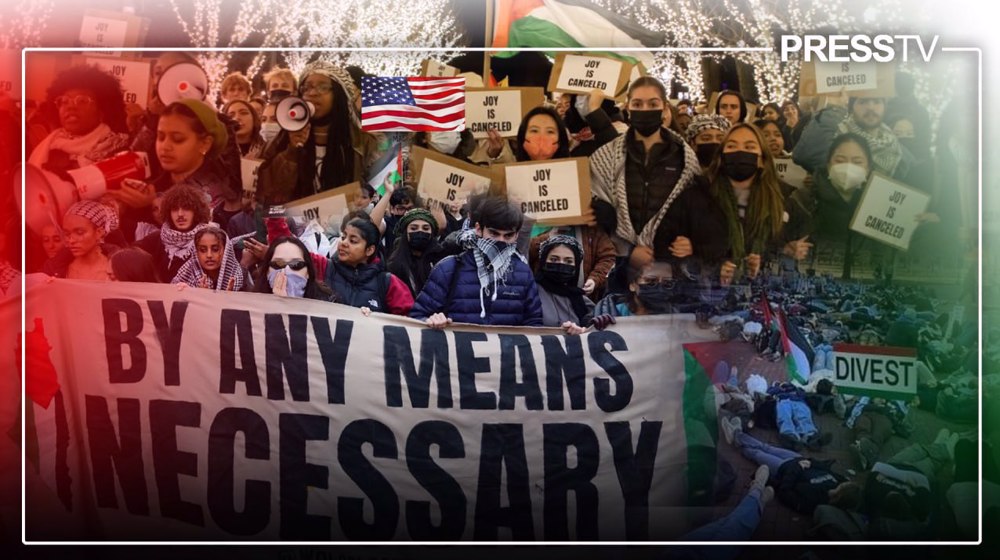

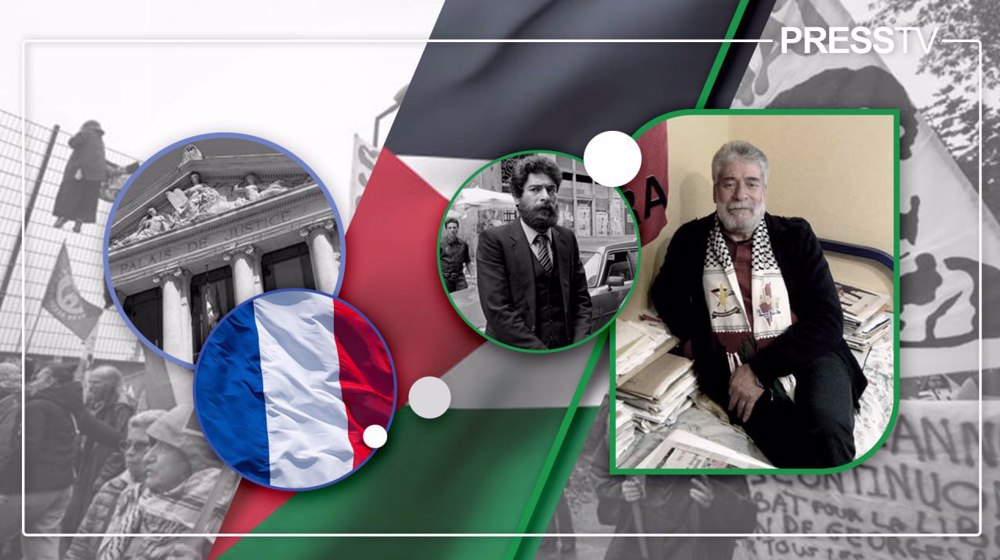




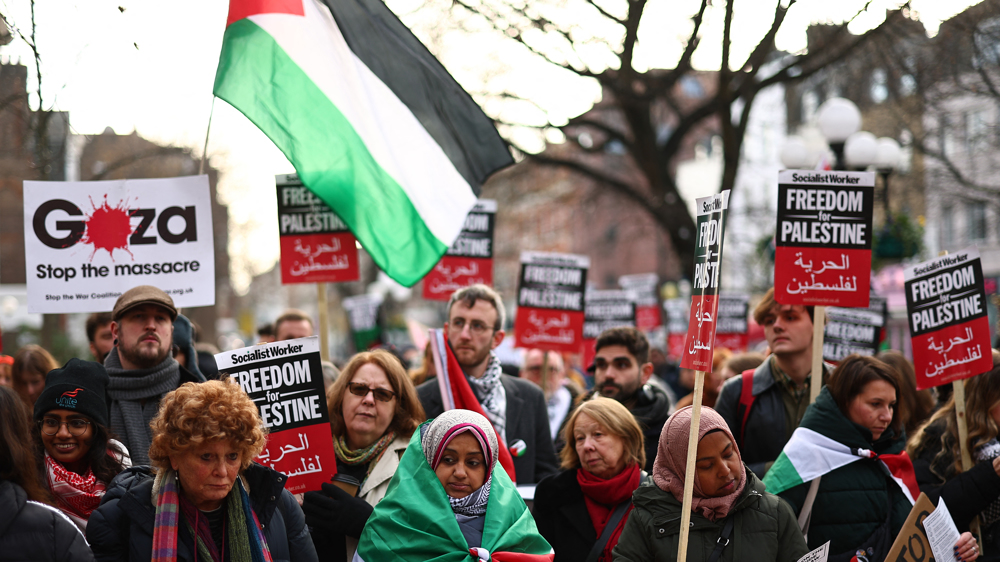
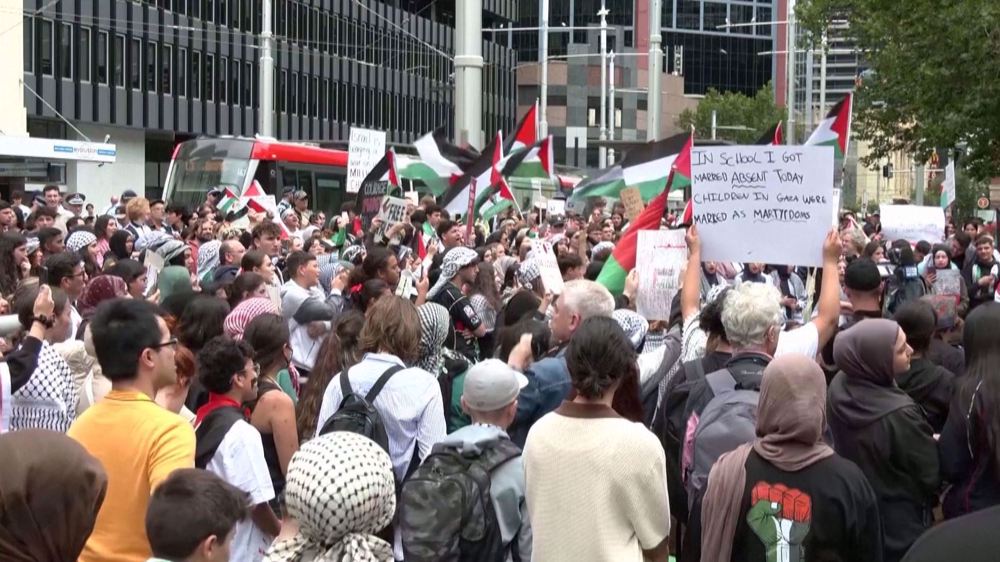
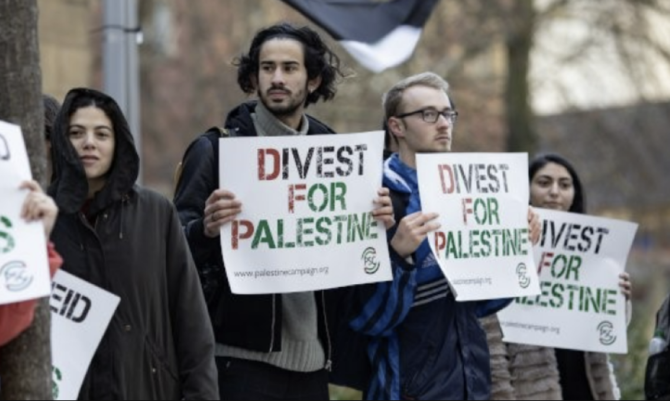

 This makes it easy to access the Press TV website
This makes it easy to access the Press TV website